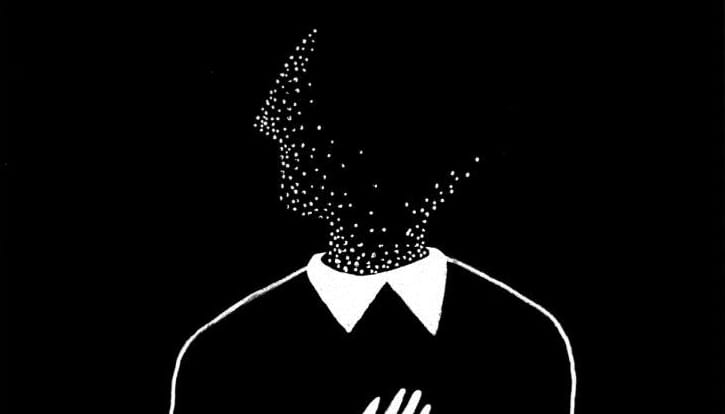As a Buddhist, I have vowed to put an end to suffering—not only my own, but also the suffering I cause, knowingly or unknowingly, to other beings. A profound way to do that is by developing cultural humility, a term coined by two women of color specializing in public health, Drs. Melanie Tervalon and Jann Murray-Garcia. Although humility has connotations of weakness or submissiveness, the ability to listen to others—their speech, appearance, and values—as well as to our own speech, appearance, and values, requires great inner strength. Regardless of whether we are on the upside or the downside of sociopolitical power, we all participate in and uphold a socially constructed hierarchy that benefits some and marginalizes others. By listening to ourselves, we can begin to recognize that participation as well as our own biases, limitations, and unconscious stereotypes. As a result, we become more authentically open to ourselves and to others.
Cultural humility is about looking deeper and discovering the complexity of our cultural inheritance, the values we learned about ourselves and about others. It’s discovering what we’ve internalized and embodied from our families of origins, how we grew up, and our cultural traditions, social identities, life circumstances, and socioeconomic backgrounds. Cultural humility means uncovering the ways in which that cultural inheritance impacts how we see ourselves and relate to others. Consider the messages and mixed messages you received while growing up, and still receive, about gender, gender identity, race, ethnicity, sexual orientation, socioeconomic class, or other distinguishing characteristics of identity. Where did those messages come from? Books, movies, media, family, friends, institutions—school, church, work—the totality of our personal experiences and stories heard and unheard. What was the feeling tone of the messages and mixed messages? What are the physical, mental, or emotional reactions stored in the body now? How might these messages and mixed messages affect the relationships we have or have had with people? And with ourself?
One way we can develop our cultural humility is by extending our formal Buddhist practices of compassion, contemplation, mindfulness, and awareness meditation into our everyday lives. Using contemplative practice, we can explore our social conditioning, how we have been taught to operate in the world as social beings. Social conditioning is how culture is transmitted, how social systems are held in place. Social conditioning is not all bad. It’s how we learn to live and work well with others, but it’s also how we have unconsciously learned to see groups of people in specific and limited ways. It started the day we were born, when people learned our biological sex, as evidenced by numerous studies showing the effect gender bias has on infant development. It’s the basis for how we fundamentally feel about humanity.
It’s not easy to see unconscious social biases. When one begins to look closer, one often feels shame, blame, or guilt. We need to be willing to feel it so we can go beyond it.
Stop for a minute to contemplate how Black men have been portrayed throughout your life. I remember the media images, the stories, the warnings I got from my Chinese immigrant parents. In the past when I encountered Black men unfamiliar to me, an embodied fear arose, unbidden. The body tenses. That tension transmits subtle—or not so subtle—messages that contribute to the social body, to upholding a system I would rather not support. This response isn’t unique to Asians or whites. I have heard from Black friends, both men and women, that they too have been conditioned to be afraid of Black men. Though this bodily response is not our fault—it’s how we were socially conditioned—it is our responsibility to become more aware.
By acknowledging our cultural baggage, we can notice when fear arises. I recognize it in the tightening of my body, the contraction of my torso. I have learned to stop and assess the situation before reacting. I can objectively evaluate the safety of my surroundings, and rather than crossing the street, I can relax and walk past a group of Black men. This may seem insignificant when weighed against the scale of societal racial injustice, but this conscious awareness is the first step toward social transformation. Feeling whatever arises in the body with care and curiosity, without judgment, opens space in the body for wisdom to emerge. It is possible to gain valuable knowledge that can help us go beyond habitual, fearful responses in daily life situations.
Fortunately, Buddhism teaches that whatever has been constructed can be deconstructed. Social constructs are ultimately empty, yet they can cause great suffering. It’s not easy to see unconscious social biases, to see what we don’t see. Moreover, the socially constructed hierarchy can seem very solid and cause much harm, as we remain unaware. When one begins to look closer and uncover unconscious beliefs—the roots of prejudice, the foundation of an unjust social construct—one often feels shame, blame, or guilt. While no one likes to feel shame, blame, or guilt, we need to be willing to feel it so we can go beyond it. Only then can the journey of uncovering our hidden beliefs, painful as it may be, become the very ground for creating community, the deep interconnections that can heal human divides and ultimately heal the planet.
Cultural humility is a lifelong journey of self-awareness and self-reflection. It’s not about being “politically correct.”
It’s difficult to practice this kind of awareness without first laying some groundwork. I start by remembering basic goodness, vast open space, an awareness that is infused with caring warmth. In Buddhism, we try to see beyond appearances so that we may know the ultimate truth, buddhanature, the basic goodness of all phenomena. This absolute truth is the necessary ground for exploring our entanglement with social injustice. At the same time, we cannot forget the relative truth of unacknowledged pain and suffering. As they co-emerge moment by moment, we can hold both relative and absolute truth in our hearts, creating good human society.
Cultural humility is a lifelong journey of self-awareness and self-reflection. It requires exploring how varied cultural backgrounds might merge or collide. It is not simply about learning a list of what to say or not to say in mixed groups. It’s not about being “politically correct.” There are just too many cultures and subcultures for any of us to be able to begin to know them all. Even if it were possible, people don’t fit neatly into cultural boxes. We are all multidimensional beings, with overlapping and intersecting identities, with complex values and beliefs. Misunderstandings occur, and even good intentions can have a negative impact on others. The starting place for cultivating cultural humility, then, is to develop an attitude of inquiry, sensitivity, and active listening.
For myself, cultural humility practice creates an inquisitive atmosphere for self-awareness and reflection, a loving space to heal the racism I experienced growing up. The wounds I once unconsciously carried—seeing my brother being called a “chink” while getting beaten up as a child, or the anger I felt upon learning my family was not welcome in a neighborhood my parents had considered moving us to—no longer haunt me. Supported by community, this healing space of cultural humility has allowed me to be more fully present with whatever arises. In allowing what arises to simply be, space opens for something new: tender vulnerability and a broken heart that longs for authentic relationship.


